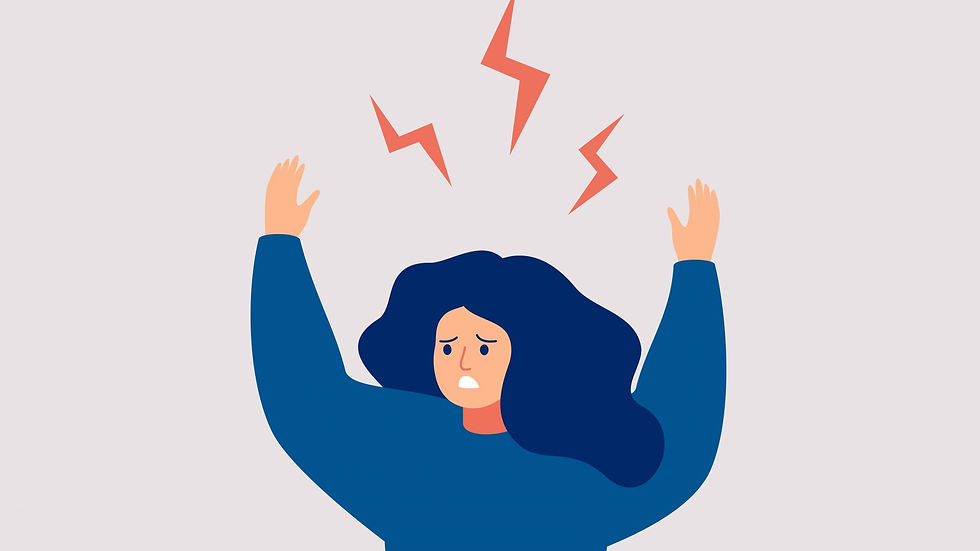How I stopped overreacting
- Laura Gainor
- Nov 1, 2023
- 2 min read

We’ve all been there. Transgression after transgression boils up and eventually leads to an emotional blow out! I’m going to tell you how I’ve stopped engaging in this unhelpful pattern in my relationships and offer three tips for how you can achieve the same.
I’m going to start by telling you a story of a recent time I got incredibly angry, and tell you how I avoided over reacting.
Story: the flatmate nightmare
This one is fresh because it just happened to me. Last night at 1 AM my flatmate decided it was a great time to ship a huge box of stuff. My bedroom is downstairs and she was so loud. She went back upstairs and ten minutes later there was a strange man knocking at my bedroom door (how did he get in?) who woke me back up.
I was livid. I love to sleep, and this made me so frustrated.
So what did I do when this man knocked on my door? I opened it, got my housemate, grabbed my noise cancelling headphones and went back to bed.
Why didn’t I get mad?
People love justice at the end of a story, right? I’m sure you would have rather me told her off, or asked him politely to go away.
The thing is - while justice is good for the reader - I noticed forgiveness is what brings me peace.
It probably helps that I’m moving out in two days as well, but I’ve noticed over the past year I’ve grown to be less angry, and when I am angry, I’m able to communicate it in a way I’m proud of and move on.
How I avoided getting angry in three steps
If you feel like you keep everything in, but then lash out, or lash out in general, I have three tips for how I stopped doing this that you can try:
Focus on what you can control - for me this was the noise cancelling headphones and making the problem go away faster by getting my roommate even though I didn’t want to
Know your boundaries - of course, not all situations are one offs. Make sure you know what is and isn’t okay with you and communicate them effectively
Add consequences to your boundaries - this is where I used to make a mistake with boundaries. I would set them, but do nothing when they were breached. The important thing about these consequences are you must be able to control them. For example, if someone does something you’re not ok with, a consequence wouldn’t be you doing something to them, but you can act in a way that protects yourself like hanging up or withdrawing.
Thanks for reading!
Sign up for emails to get weekly blog updates and a free social media guide and planner.



Comments